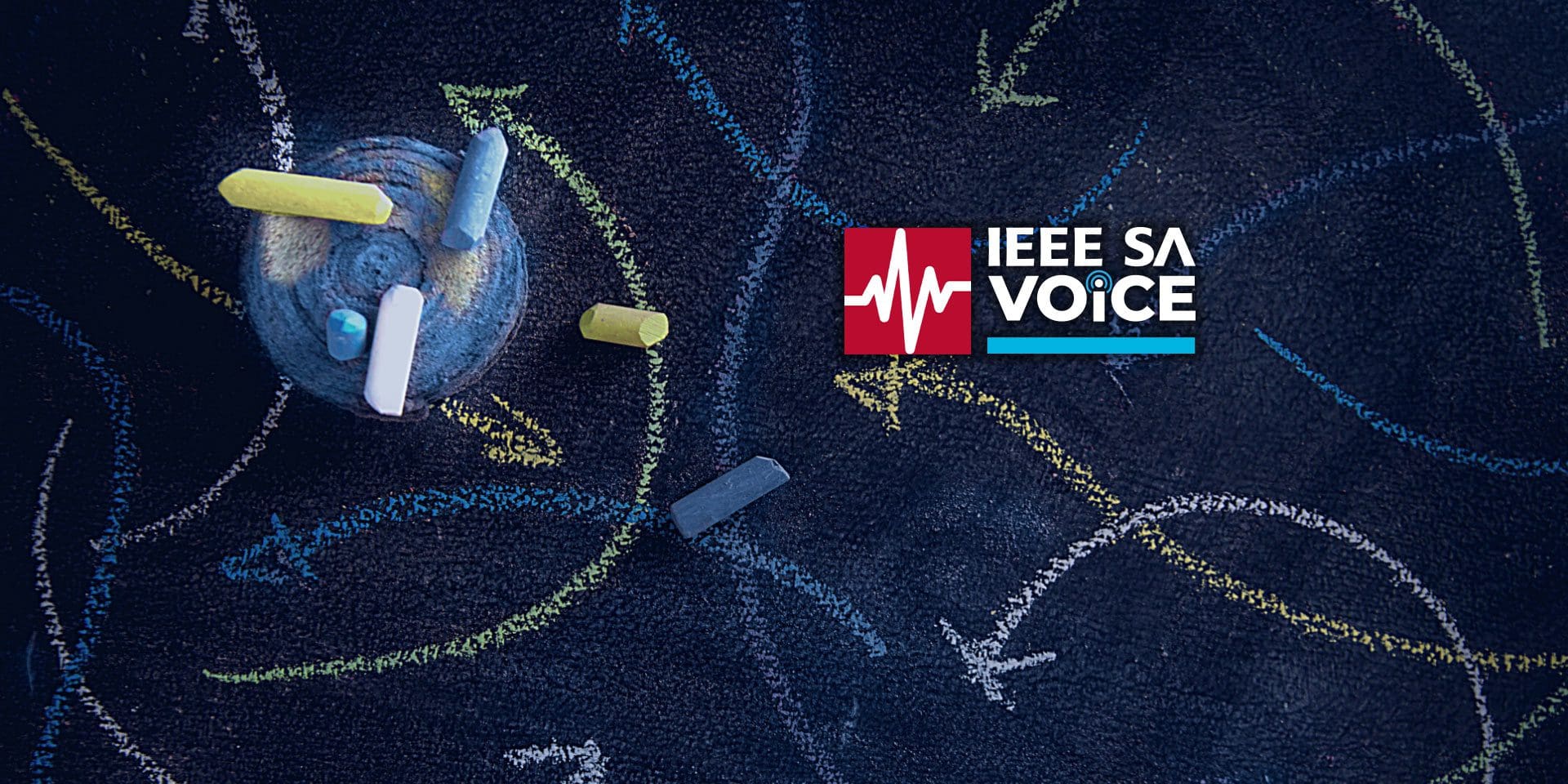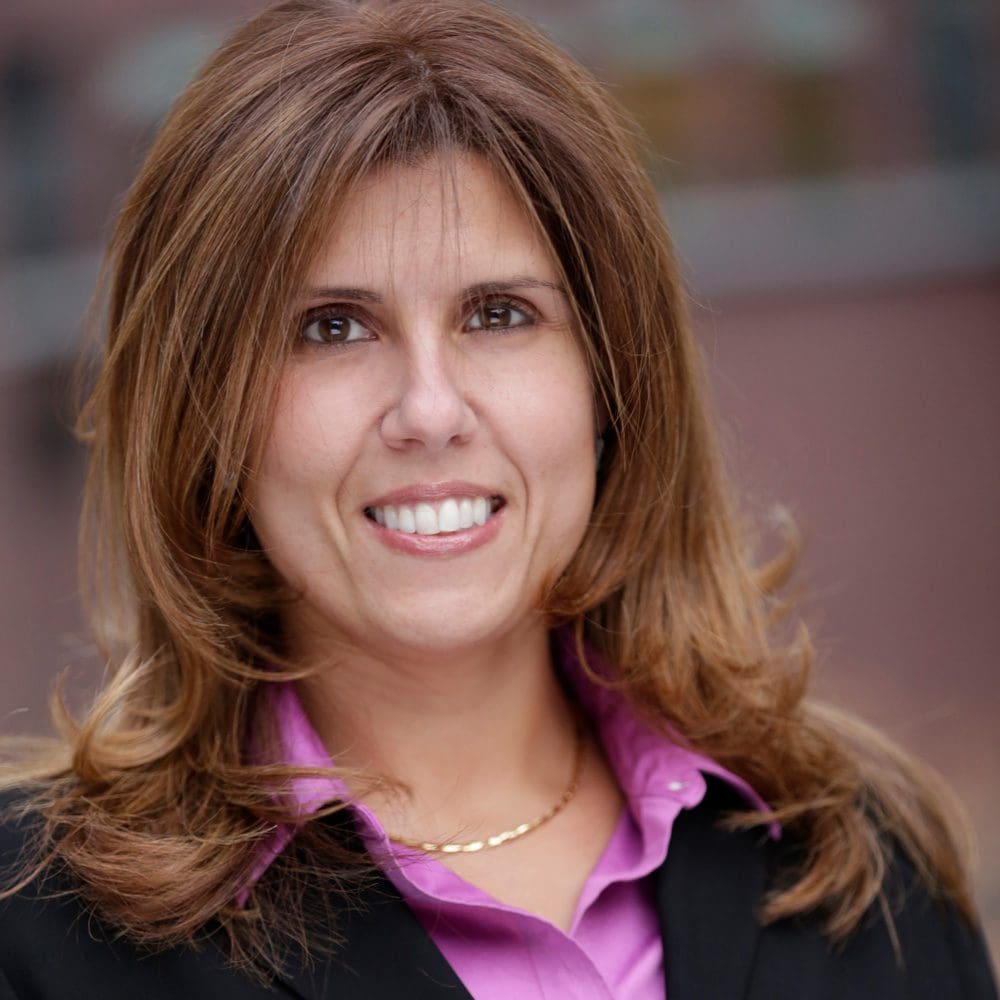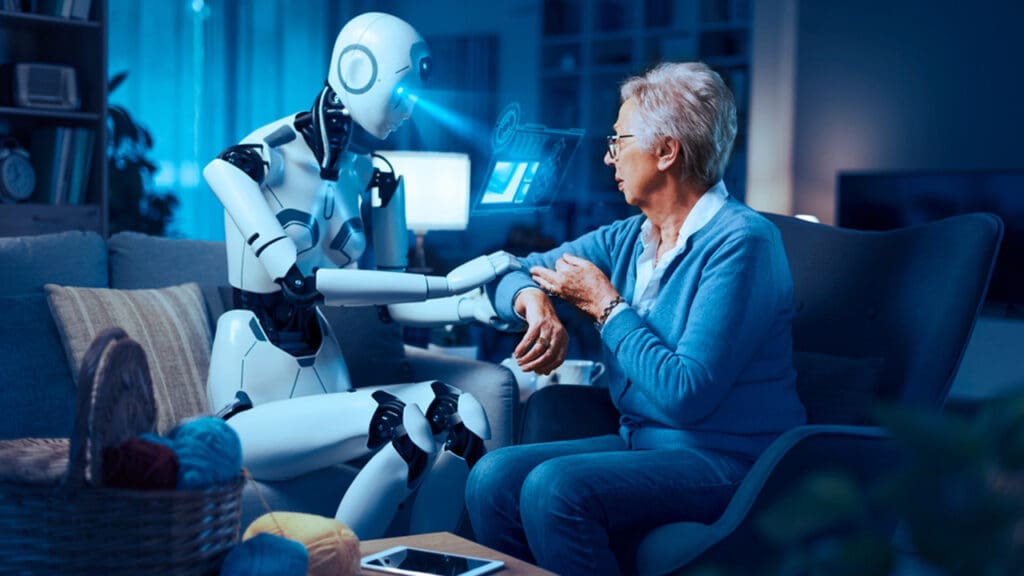Maria Palombini, Director of Emerging Communities & Opportunities Development and Healthcare & Life Sciences (HLS) Practice Lead at the IEEE Standards Association (IEEE SA), interviews Walter De Brouwer, CEO & Founder of Doc.ai and Chair of the IEEE SA Technology and Data Harmonization for Enabling Decentralized Clinical Trials Industry Connections (IC) Program to discuss decentralizing clinical trials, addressing remote health challenges during COVID-19, and how to engage in the IC program.
Re-Think Health Podcast Series is part of the IEEE SA Voice program. IEEE SA Voice shares insights and perspectives from the IEEE SA community, subject matter experts, and industry leaders that are working to raise the world’s standards, drive market solutions, and much more, keeping you at the forefront of technological innovation for the benefit of humanity.
Stay to up-to-date on the latest podcasts and HLS related activities.
Subscribe to our feed: Podbean, Apple Podcasts, Google Podcasts, Spotify, or TuneIn.
About This Episode’s Guest
Walter De Brouwer
 Walter De Brouwer is the founder and CEO of the Palo-Alto based deep learning company Doc.ai. which is building AI-powered pipelines for the pharma and healthcare industry. He is an adjunct professor at Stanford University School of Medicine (CERC) and the executive Chairman of xy.ai, a Harvard spin-off that uses satellite data to map the impact of the exposome on human health. Additionally, Walter is Chair of the IEEE SA’s IC19-004-01; a member of RDSC (the ROCHE Data Science Coalition); a member of Anthem’s Digital Leadership; and a member of TED and of the American Mathematical Society. He holds a master’s degree in Formal Linguistics from the University of Ghent, Belgium, and a Ph.D. in Computational Semantics from the Catholic University of Tilburg, the Netherlands. His current interests include 5G Cognitive Radio, tinyML, Quantum Computing, Federated Edge Learning, and Information Theory.
Walter De Brouwer is the founder and CEO of the Palo-Alto based deep learning company Doc.ai. which is building AI-powered pipelines for the pharma and healthcare industry. He is an adjunct professor at Stanford University School of Medicine (CERC) and the executive Chairman of xy.ai, a Harvard spin-off that uses satellite data to map the impact of the exposome on human health. Additionally, Walter is Chair of the IEEE SA’s IC19-004-01; a member of RDSC (the ROCHE Data Science Coalition); a member of Anthem’s Digital Leadership; and a member of TED and of the American Mathematical Society. He holds a master’s degree in Formal Linguistics from the University of Ghent, Belgium, and a Ph.D. in Computational Semantics from the Catholic University of Tilburg, the Netherlands. His current interests include 5G Cognitive Radio, tinyML, Quantum Computing, Federated Edge Learning, and Information Theory.
Follow Walter De Brouwer on Twitter.
[toggle title=”Full Transcript” state=”close”]
Maria Palombini:
Hello everyone, welcome to Re-Think Health, a podcast series powered by, IEEE SA Health Care and Life Sciences Practice. I’m Maria Palombini. And I’m your host and I’m delighted that you’ve joined us today.
Maria Palombini:
It’s a really exciting discussion on digitalizing clinical trials, what I like to call removing the pain and enhancing patient care, and I’m honored to have with me Walter De Brouwer, founder and CEO of Doc.ai and the volunteer chair of the IEEE SA Technology and Data Harmonization for Enabling Remote [now entitled Decentralized] Clinical Trials Industry Connections Program. As you all know, for those of you who are actually members, we put a lot of words into a lot of our programs. So just a little bit about Walter. He is an adjunct professor at Stanford University School of Medicine and a visiting professor at the School of Management. He runs the Harvard Medical School spinoff XY.AI, which actually pioneered the digital twin algorithm in medical research and created the geo-intelligence system to study the cosmic burden on genomes. That just a sentence alone just makes me think how amazing and grand that work is. He also participates in various other programs, including the Growth Data Science Coalition and other organizations. So and he has many interesting interests and interests. He’s looking at five key cognitive radio, quantum computing and everything in between. So, Walter, thank you for joining me today. It’s a pleasure to have you.
Walter De Brouwer:
Thank you for having me.
Maria Palombini:
So we know whoever’s in the pharmaceutical health care domain that there are some systemic challenges in clinical trials. So let’s start with who clinical trials are supposed to help patients? Why do patients feel so out of the loop when it comes to the ability to make decisions about their health in their care? And what are some of the trends impacting drug development, cheering and ownership of this health data?
Walter De Brouwer:
Well, first of all, I think it’s common for too many people that we have a delivery problem for health care in the United States. And delivery problems always arise when it’s just some of the scaling per square kilometer and the inhabitants of scale kilometers. And it’s also a symptom of the complexity of industrialized civilizations, of course. But in the states, really to get an appointment with the doctor or specialist, it’s really painful. And also the costs associated to that are horrendous because we are in a situation where medical bills are the first cause of bankruptcy in the United States. And then if the results were great, perhaps we could understand that a little bit. But the results are abysmal because we have the lowest life span, the lowest life expectancy. We have the highest mortality of babies. So we have the highest rates of suicide.
So there is something between the collection of price and value that is completely wrong. And also our health care is linked to our job. So you mostly get sick when you’re not having a job because you have too much time. Time is also a bit of like a medication. You know, you can overdose if you have too much time. But just when you don’t have a job and then you’re also your health care falls away. And then there are all these layers, like I call them the five piece, like the patient is one.
But there is the provider, the physician of pharma, the politics, the regulator. And all these create actually and the pay are of course, all these create an enormous layer of bureaucracy where the patient has to find its way.
And for the moment they don’t find their way in and they just do the best they can. So Americans aren’t a society of whiners, so they just make to make the best of it. But being out of that digging, that side loop is, of course, of course, one of the reasons our mental health problems also go off.
Maria Palombini:
Absolutely. There’s just the whole complexity of problems. Speaking of an interesting problem, we are all in the midst of our fourth or fifth month of this covid-19 pandemic, which has been which has opened the Pandora’s box for the idea of telehealth, remote health and care. And we also know that many clinical trials, unfortunately, had to be paused or canceled as a result of the pandemic. So when the clinical trials IC program was born at the end over a year ago at the IEEE Standards Association, we had not envisioned covid-19 pandemic. At the time, we were trying to address some of the challenges we saw in the clinical trials industry and low and behold, the future became today.
Maria Palombini:
So my question to you is, how do you think the group can impact the continuation of trials in the future even? With covid-19 and beyond to whatever the next potential challenge might be, how and what do you foresee happening as a result of it?
Walter De Brouwer:
Well, first of all, there’s a lot of new things that have happened in technology that still have to go into drug development, which will dramatically reduce the costs of medical research. You know, why have all these clinical trials forced now? Well, first of all, there’s this paranoia set in. Patients don’t want to see doctors because they think they’re infectious and doctors don’t want to see patients because they think they’re infectious. So and so they find each other on the screen and that they now know that it’s a lot easier. And they can also do it digitally, which is we have evolved towards a synchronous communication society. We’d rather actually do things writing or chatting than ever having actually voice calls, which you can never interrupt because there’s a guy, you know, sitting in his living room talking about this life for an hour. So all these things are actually very good for people to realize, hey, you know, there’s a new kind of delivery there and it works very well for doctors and for patients. And why have these trials now paused not only because of that, but because people start to realize I don’t want to go to a site where there are doctors, where I’m actually handled in an unfriendly way, almost like patronizing way. And there is another way for us to do it. If I want to be in a trial, I don’t want to do it for eight dollars a day and risk my health and go through all this hassle.
So people who organize clinical trials have to rethink this relationship today because, of course, nobody likes change. You know, my wife always says that I only change to avoid change, which is probably true, but probably work for everyone. But, there’s something worse than change and that is an irrelevance. And this is the time to change now. And of course, if your bread and butter and if you make a great income, it’s very hard to persuade people who make a lot of money that they have to change, you know, but it has to be.
So let’s look at the drug development. How can the technologies of today, how can we make this a lot cheaper and a lot better? First of all, there is a big wave coming and now it’s covid-19. This has brought momentum and acceleration. So patients and they are realizing it. Patients are becoming the buyer’s market. So the seller’s market is over more and more. They will be in charge. They want a Yelp industry of doctors and providers so that decentralization from a central point of hospitals where people have to go and to a doctor. And so they want to do it, you know, like what they are experiencing now. They want to keep it going.
And this also translates in our technology because we now have we build up the cloud, you know, like where every enterprise is using the cloud and every user is using the cloud. But now everyone has a smartphone. So if you think of it. And so, first of all, if you have a smartphone, you are basically a researcher. And that’s a new concept that we have to tell people, as is the story that we have to tell people now, and that we have to actually admit to people that medicine we don’t know everything.
Basically in medical research, we use a lot of statistics to basically hide our temporary ignorance of facts. So we should also share that with people that they are researchers, the participants are researchers, and they can do that on their smartphone and in that smartphone. We will use from the technology side every component in that smartphone to extract medical information. And that smartphone itself will be a remote device where a hub where we can connect to all the other devices around us and extract medical data. And then the technology is now there to both ensure the privacy on the edge of the device, because now if you have a smartphone, you don’t need to go to the cloud anymore, you know, as an individual, because I can store more on my smartphone than on my laptop. I can compute on my smartphone. But until recently I could not train a model. I could not make my smartphone learn.
Now, at Federated Learning, we can do everything on a smartphone. So that means in the future. Now, how does it work? Like we have a lot of daytime companies have a lot of data. They put it in the cloud, which is a sort of a public toilet, you know, like because you never know who goes before, who comes off to you and you just want to wash your hands and get out. Now, we can do it on our smartphone and we don’t have to go back to the cloud and process some information that is there. It is on our smartphone and what where it is created, it will be continuously computer. And so we are going for health care as a discrete function. And with the discrete function, I mean, like your bank account, you know, something goes in, goes out. It’s a bit like a patient, you know, like you false that put them in a hospital. A week later, they will come out and that’s where the protocol ends. And then, you know, you see people crawling to a cup and there again in the world, in the real world, and they don’t actually know what happened to them.
So that’s because health care is a discrete function. We only need, you know, engineers who are once also discrete. We only corrected bugs in the system, but now we don’t do that anymore. Well, we’re still correctable bugs, but I mean, we are looking at what we are doing as a marathon. We are continuously looking for security and looking for mistakes. And health care will be a continuous function, just like a plant that grows that is only to singularities.
You are born and you die. And everything that comes between is a superposition of you are healthy and you are not healthy. But by getting a lot of data on that, we will you know, patients will learn to know themselves and they will if they have a disease, they will even become expert patients after that, you know, to tell other patients, because if they give me the opportunity, if I have a disease to talk to an expert doctor or an expert patient who went through it, I first want to talk to the patient. So all these things are happening now that decentralization and another big thing is happening that is real world data. And I want to explain that a little bit, because this is going to be so important for the future.
Up to now, our medical research worked in controlled studies with the placebo control group and another group, some group got the real bill. The other group got the placebo. You know, people always have placebo for you. You know, like, you know, I have the placebo pill that basically – you come to a situation where they come to people like us, you know, mathematicians, and they make us a model because it has to go through the FDA. And these are the standard deviations that the FDA will follow. So for us, so that we white boards, because we know the success of getting through the FDA is basically how you calculate error.
So we are making a model of a world and we stipulate what this world is. And in this world, the model works and the drug works. But please don’t go out of this world because it’s a world. It is not the world. So then afterwards you go into the world and there you have something like pharmacovigilance, which the FDA does, and then you see how a drug performs in the market.
Now, why do we do that? It cost a lot of money. It’s basically mathematically controlled into an ideal world while we could do real world data and real world evidence. And where is that? Well, for instance, it’s in claims that its claims are payers, insurers, and they have already actually paid out for a disease. And we sure, if they pay out, you really have had that disease, you know, because they check every step of it so that that’s the placebo. So you can give people a bill and then you take, you know, like a big amount of data where you make digital twins. Basically, you say like we want the same people, the same BMI, the same age, the same gender, the same condition, and that is the placebo. This will speed up medical research enormously. And so out of that comes real world evidence.
Then another thing, that’s why I mentioned this, everything on extra computing and the learning for the first time in the world, probably we have found a way which is non zero sum up to that. You know, for data up to now, everything was a zero sum. If I get something, I have to take it from somewhere else. So that’s why people don’t want to give their data because, you know, everyone keeps their data in silos because if they give it, they don’t no longer have what we have done.
And basically on earlier research of Google in 2015, we were the first actually that worked on that for medical research because what does it mean? Well, in Federated Learning, you give a model to people who have data and you say, you know, populate that model and give us the encrypted answers, which is mathematical formula. And that is actually the essence of the learning. You don’t know any of the data. You haven’t touched the data. You don’t even know the structure of the data. You certainly don’t know who is behind that data or, you know, you don’t have to identify it, but then you can exchange the answers and both win. It’s a win-win. It’s not a zero sum. So this will help medical research enormously because in academia, we always have to beg for data. Now, with that new situation where A.I. has come on through learning, we can even do it on smartphones. People can collect their data on their smartphones. And then what we do is we put all these smartphones together and then everyone because of a smartphone. I know how I am doing, but I don’t know how the others are doing. So I have no point of view. But if I then have how I’m doing and all the learning of all the others, I not only learn, but I also know where I am in the perspective to the.
So also we have recently you know, there is a big problem with privacy and with learning privacy won’t go away. People think that, you know, at one point we’ll give up our privacy. I don’t believe that because our DNA is unique. If I give my DNA to someone, I expose my germline. Perhaps my grandchild someday will be brought up because his DNA is mixed up with other DNA and he gets in through Jalabi by some, you know, like because I didn’t check my sources when I did that the privacy will not go away. But you also have to learn. So how can you how can our models learn with privacy data? And of course, we have all sorts of we can use hashes and cryptography, but there’s another way we can just leave it to the user, to the patient, and we can tell them, because how does privacy work? We are adding randomization. So we are adding a lot of random noise to something. If you take a picture and you want it completely private, you won’t recognize yourself in that picture anymore and nobody will be able to decrypt. But then that picture cannot learn anymore. When you tell people you can you yourself, you can actually Parise that if you want 50 percent privacy and 50 percent learning, that’s what we will give you.
If you want 80 percent privacy, 20 percent learning, because you see that is the equilibrium. What do you want? You want to learn or do you want to be completely private? And I think that’s the best way to leave it to the people. This creates markets. You know, perhaps medical research wants people who are complete. They want to know everything so they will have to pay more because this is going to be a gig economy, just like doctors are basically now already in the gig economy. If you do telehealth, you find them on several systems, the same doctor. It’s a bit like you drive for people, you drive for Lyft and then concierge doctors, they drive the limos the same thing. And now patients will also go into that gig economy because in their downtime on their phone, they will add some, you know, medical information for which they will be paid because in micropayment, every time they do that, so they will make you know, they will make a bit of money. And so, for instance, one of our sisters, we have integrated Amazon or no cryptocurrency or just Amazon. Amazon goes. So what does that mean? Well, people make points on Amazon and they can buy everything on Amazon. Basically, it’s really become the world’s store.
You can buy everything. And people like it because that’s the new way of going to research, I think. I believe all these new technologies will dramatically reduce the cost of medical research. It will give Thayer’s, for instance, who have a lot of data, which is real world data, the ability to sell that data and reduce their premiums. It will give people like Walmart or Verizon enormous ability of getting that data and also sell it and therefore reduce their prices. So everything is reduced. The bias market comes up, services go up. People are friendly. And it may be an idealistic world, but it’s one that I want to believe in and as a scientist, we are ready to make this happen, but we need leaders who go behind this. You know, we need leaders of large corporations to say this is what we’re going to do, a little bit of channeling and consensus. But in the end, this is the vision. And we also need this to be accepted by clinical research. We need publishing. We need to publish about this is how we did it with placebo as well, how we did it. We’re not placebo. This works. This doesn’t work. So if we get these two things together, so then we are in a completely different world.
Maria Palombini:
And so, well, that was very fascinating, your vision, I mean, you have set out quite a task for your team on this industry connections program. For those of you not a part of our legal system, maybe in the connections program, you can understand as an incubator program. And it’s to take a team of 12 groups working with Walter to sort of test and make this sort of vision happen. Right. And what does that look like from workflows to changing the process? I think it’s just unbelievable. One point that I think is really you covered so many great points on benefits to patients and benefits to sponsors of clinical trials. I guess you touched on this. This is a very I don’t like to use the term disruptive in medicine because it makes people feel uneasy. But this is really revolutionizing how we think about trials in the process. And what do you what will you do you believe is going to be the element that’s going to get all these stakeholders to sort of change and accept this new approach? This is the way we have to go. What do you fundamentally believe will drive home? That is a policy like FDA writes it in. Is it through the development of standards? Is it your consensus of the system? Like what do you feel will be the turning point? Well, I have to say I have to be part of this. I have to engage this.
Walter De Brouwer:
Well, I think the industry, as it now is, is a bit like the post office. And we basically bungled the post office. The physical aspect is now Amazon and the digital aspect is email. And we’re all happy with the delivery. So when we see US Postal or coming to our door, say, I was only able to even think about this anymore, I think that we are going for and now everyone is aligned. We are going for what I call the de-carbonization of health care. And with de-carbonization, I mean fewer and fewer humans, you know, carbon based units, the highest form of carbonization is hospitals. It’s, you know, because you need more than one human and then you need more than 10 humans through a project and to bureaucratize these other humans. So it’s the number-one line item of cost. A lot of people go to hospitals and they shouldn’t go there. That’s why we have you know, we have a delivery problem there. So people should just stay in there. You know, I think there are a couple of startups now already working on the strip at the hospital rooms up at home where you just if you just need an ultrasound, you can now buy one for two thousand dollars. You can rent them at a hundred dollars a month. And since you have a virtual health care on your screen, you know, a doctor can say, oh, that looks like this, or you can even do this now. Or, you know, like there are companies like seven cents. You can just put it on your arm. There’s so many things available now. And you know what? The number one, that item that people go to hospitals for is an I.V. drip. You know, like say like, you know, you can really do that at home. You know, like a nurse can do that or, you know, they can show you once and in training you have to do it through each other. The next level of carbonization is the physical checkup.
Now, before you have a telehealth, you first have to meet this doctor who sits on the other part of the room. You are both masked. No, actually, it’s not necessary. You can even do it immediately. Telehealth is the third line, you know, like hospitals, doctors, telehealth, telehealth is a little digital. But there’s still like a doctor that on the other side before it’s de-carbonization is digital. And that is you can chat, you can go email, you can look at the response group, you can text your doctor. And you really love it because, you know, I prefer to text my doctor about medication and my medication arrives at home then really to go there and talk about it. It’s no use. Of course, I’m a declarative person. I do not seek a regulation. And then the last part is mobile, we have an agent’s identity for mental health that we are getting ready now. We put all the clinical protocols in there because there’s a lot of anxiety around now, because the more you give data to people, the more anxious they become before actually providing in the human being. So serenity is so great. People love it. Why? Because it all stays on your phone.
If you want to talk about mental health issues and anxiety, I don’t want to be on a corporate server somewhere. I want to give it to Google, you know, like before you know, it ends up somewhere you don’t want to. I want to be on my phone own device, not going to the cops. And this is possible. So this is the funnel. Hospital’s physical doctor, then virtual health, digital health, mobile health, because we will never be comfortable with getting the human out of the loop. You know, we thought so 20 years ago, 30 years ago. We thought so with banking. We optimize the hell out of banking. And in the beginning, every banker thought they were going to lose their jobs. But guess what? There are more bankers now than ever. And also there are more computer scientists working in banks every time we introduce technology. It doesn’t reduce jobs. It creates, of course, probably not with the same people. But that’s the learning thing that you have to actively work on, not becoming irrelevant. And also and it’s fun working alone. Just learning brings you adrenaline. It gives me a little probably. Well, I think it gives everyone that you just have to learn them how to learn, you know, and yeah, that’s how I see that funnel going from hospital to doctor to virtual to digital to robot. And this will scale doctors because no way we will create 10 times more doctors than we have now in the next five years. That’s not possible.
Maria Palombini:
Well, there’s so many great pieces of information and insight you share with us today. Walter, we’ve come up on time just if anybody’s interested in joining the clinical.
And Walter and his cohorts have been leading this incubator program, please visit standards that are too big. This is a great participation. If you are a pharma company or a technologist, a chain company, if you want to see clinical trials really revolutionized, this is the opportunity to be a part of something that will definitely put a football front in the ground. Walter, thank you so much for your time today. I will be sure to invite you again to see how the team is progressing and definitely get a little more insight into how you’re seeing the future of trials going and how we’re starting to make that change for everyone else. Thank you so much for joining us. Until next time. Stay safe and be well.
[/toggle]









